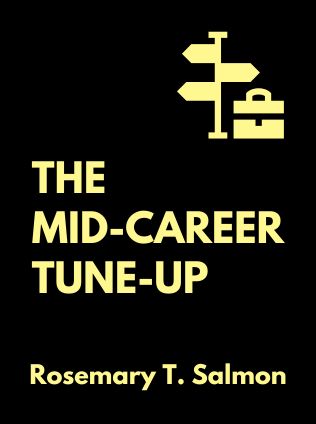
The Mid-Career Tune-Up
10 New Habits for Keeping Your Edge in Today's Fast-Paced Workplace
By Rosemary T. Salmon,
Published 12/1999
The Mid-Career Tune-Up: Ten Work Habits for Keeping Your Edge
By William A. Salmon and Rosemary T. Salmon
About the Authors
William A. Salmon was a management consultant, former bank executive, and writer. His books include "The New Supervisor's Manual." Rosemary T. Salmon is a founding partner in Salmon & Salmon Associates. Together, they bring extensive experience in management and professional development, offering practical advice for mid-career professionals to stay competitive in a rapidly changing work environment.
Main Idea
"The Mid-Career Tune-Up" addresses the evolving demands of today's workplace, offering ten work habits for mid-career professionals to stay competitive. It emphasizes adapting to constant change, expanding expectations, and increasing the need for flexibility. The book provides tips and checklists to help individuals sharpen their skills, manage their time, develop relationships, and resolve conflicts effectively.
Table of Contents
- Do What Your Company is Paying You to Do
- Balance Demands on Your Time and Resources
- Sharpen Your Communication Skills
- Develop Productive Relationships
- Resolve Conflicts Rationally
- Fix Your Own Problems
- Be Creative and Flexible
- Learn to Accept Uncertainty
- Take Responsibility for Your Job Performance
- Manage Your Own Professional Development
Do What Your Company is Paying You to Do
With downsizing and reengineering, employees must prioritize tasks and manage time wisely to meet company goals. Understanding your company’s mission and aligning your tasks with it is crucial. Start by understanding the big picture, including the company's mission statement and strategic objectives. Then focus on how your department and your individual role contribute to these goals.
"You cannot succeed in today's workplace by doing the wrong things right." - William A. Salmon
Set and prioritize goals based on their alignment with company objectives to ensure time well spent. This involves identifying critical, urgent, and cost-effective activities and focusing your efforts on these priorities. One method suggested is to set on paper your three or four most important goals, including a complete description of each goal, the person or persons for whom the goal's output is destined, and when the goal must be achieved.
To effectively prioritize these goals, consider which goals are most supportive of your company's mission, which would be the most impactful if only a few could be achieved, and what happens if certain goals are not met. By aligning your personal goals with the company's strategic objectives, you can ensure that your efforts are directed towards activities that truly matter.
Balance Demands on Your Time and Resources
Efficient time management is key to achieving priority tasks. Identify time-wasting activities like poor communication, procrastination, and unnecessary meetings. Focus on activities that support your highest priority goals. One effective method is to analyze your current work activities, estimate the time spent on each, and compare how much time is allocated to high-priority tasks versus less important ones.
"Analyze your activities to ensure you are spending time on what matters most." - William A. Salmon
Sign up for FREE and get access to 1,400+ books summaries.
You May Also Like
The Subtle Art of Not Giving a F*ck
A Counterintuitive Approach to Living a Good Life
By Mark MansonRich Dad Poor Dad
What the Rich Teach Their Kids About Money - That the Poor and Middle Class Do Not!
By Robert T. KiyosakiHow To Win Friends and Influence People
The All-Time Classic Manual Of People Skills
By Dale CarnegieQuiet: The Power of Introverts
The Power of Introverts in a World That Can't Stop Talking
By Susan Cain



















